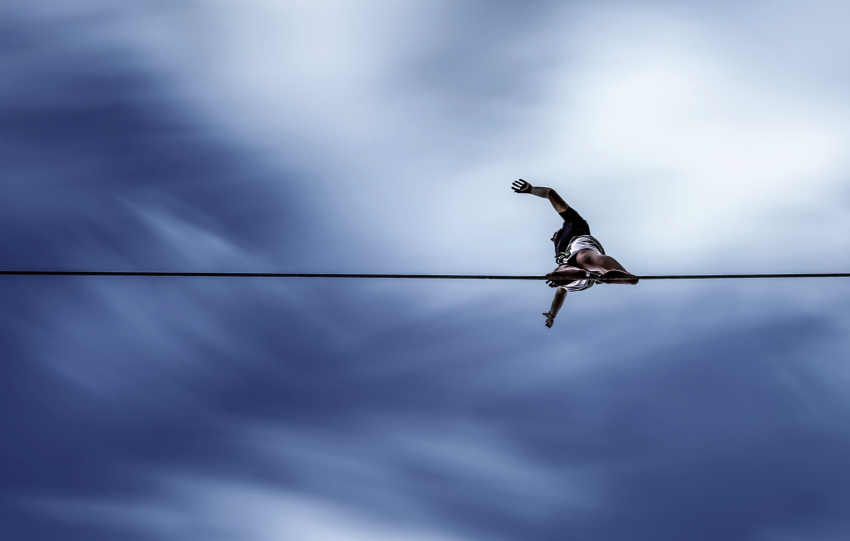Share This Article
Everyone at Drew’s is talented in one way or another. Whether it’s athletically, academically, musically, socially… you get the gist, everyone here is pretty much brilliant at what they do. Being in such an inspiring environment got me wondering, what is my special talent? And after thinking long and hard, I concluded that I’m ok at sport, doing well at uni and happy with my social life. But what is my real gift in life? And then it hit me…
I am a Master Procrastinator.
I’m not talking just putting off tasks until a little bit later, I am talking active avoidance of responsibilities. You probably don’t even want to know how long it has taken me to write this article. I actually came up with this idea when I was supposed to be writing another piece. I procrastinated by reading up on procrastination – surely that’s a sign I’ve hit rock bottom.
I learned a lot, not only about why we as humans love to avoid important tasks, even when we are aware that there may be negative consequences, but about how we can break this habit and become more productive (there is hope!).
Procrastination has been a favourite behaviour of humans for millennia. Back in the time of the ancient Greek philosophers such as Socrates and Aristotle, the idea of procrastination was known as ‘Akrasia’, which meant the ‘state of acting against your better judgment’.[1] So for literally thousands of years, humans have been doing one thing even when they know they should be doing something else. And in our day and age, we have more distractions than ever; the whole world is right at our fingertips. Especially in a college setting, it can be so easy to fall down the deep dark hole of procrastination when you’re living right next door to your best mates.
So, after a little bit of research (and lots of time passing, of course), I decided it was time to get on top of my procrastination. Not sure if it’s working yet but if you’re reading this it means that I have at least managed to finish an article (Go Me!). Here’s what I learnt about why we procrastinate and how we can limit our procrastination:
Procrastination can be considered a habit, which can be broken down into three parts: the trigger, the pattern and the reward. In the case of procrastination, it is usually triggered by stress (such as a deadline), the pattern is the avoidance of tasks and the reward is stress relief, which comes from doing something else in place of the task at hand.[2]
Understanding the ‘why’ of procrastination can also be explained from the perspective of behavioural psychology. Essentially, the human brain tends to value instant gratification over future rewards (i.e. the brain chooses the stress relief that comes from procrastination). This occurrence can be best understood by considering two sides of yourself: Present Self and Future Self.[1] When you make plans or goals, you are setting them for your Future Self, who sees the merit of long-term rewards. However, and here is the difficult part, only your Present Self can take action towards achieving those tasks you have set for your Future self.[1] Unlike your Future Self, your Present Self loves instant rewards.
For instance, when I decided to write this article, I was making a plan for my Future self. But when it came time to actually get started, my Present Self was much more interested in watching cute puppy videos, learning TikTok dances and contemplating why the number 11 isn’t pronounced ‘onety-one’. Even cleaning my room suddenly became very interesting. My Present self was much more concerned with finding instant gratification than working hard towards my longer-term goal for my Future self: to finish this article.
So, what can we do to stop procrastinating?
Essentially, when you are delaying working on a task, you are aware that there are future consequences if the task hasn’t been completed, however they are generally just a small nag in the back of your head. It isn’t until your deadline approaches and suddenly those future consequences have become present consequences that you really kick into gear and get started.[1] One of the ways to manage procrastination is to turn the future consequences of any task into present ones. You can do this by setting small deadlines for yourself and keeping yourself accountable.
Another way the habit of procrastination can be broken is by changing your habits of task avoidance. When you find yourself falling into procrastination mode, acknowledge that this has been triggered by some form of stress. Count down from five to stimulate your prefrontal cortex and then work on your task for just five minutes. For most people who procrastinate, the problem isn’t actually working on the task, the problem lies in starting the task in the first place. And if you can start the task, even if you tell yourself you will work for only five minutes, 80% of people will continue to work anyway.
Even small changes such as setting app usage limits on your phone can help. I tried this by limiting the time I am able to spend on social media to 1 hour per day and my screen time dropped by about 70%. Living in a college environment does come with its challenges but like the way you can set limits on your phone, you can also set limits for yourself about when and where you work best, and when you need to be alone.
These are all techniques that I will be implementing for myself to manage my procrastination. Although I do consider myself to be a Fantastic Procrastinator, it’s not something to be proud of and who knows what I can achieve when I put my full energy into the task at hand rather than just procrastinating!




